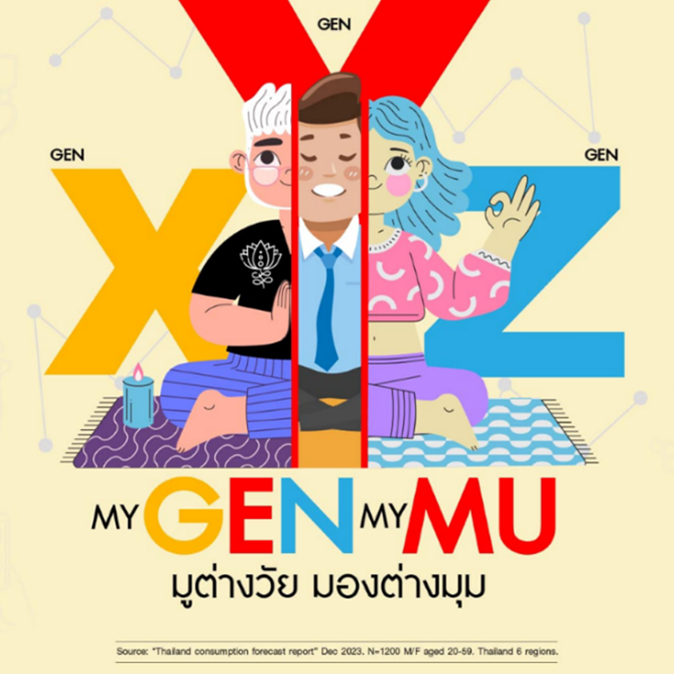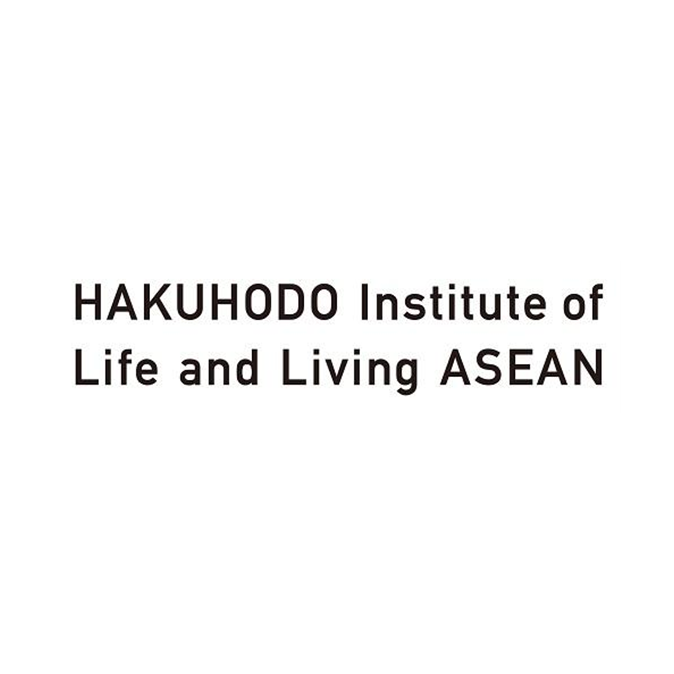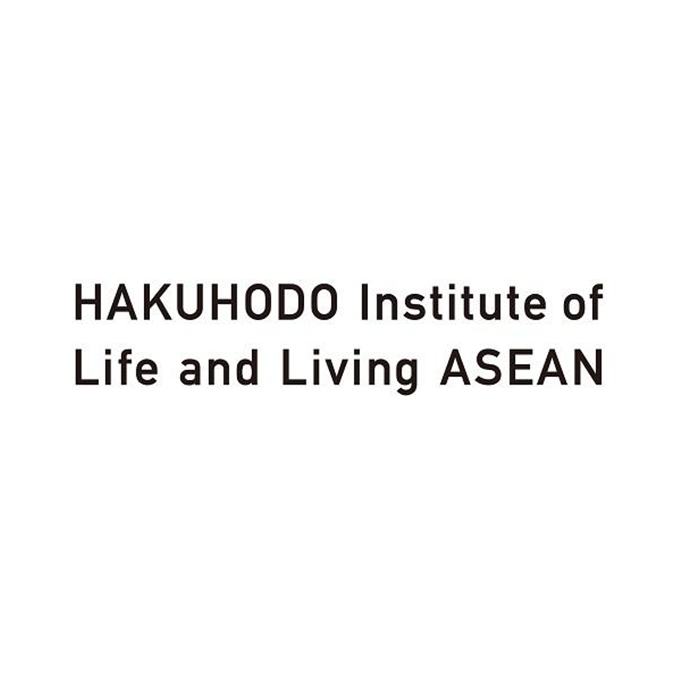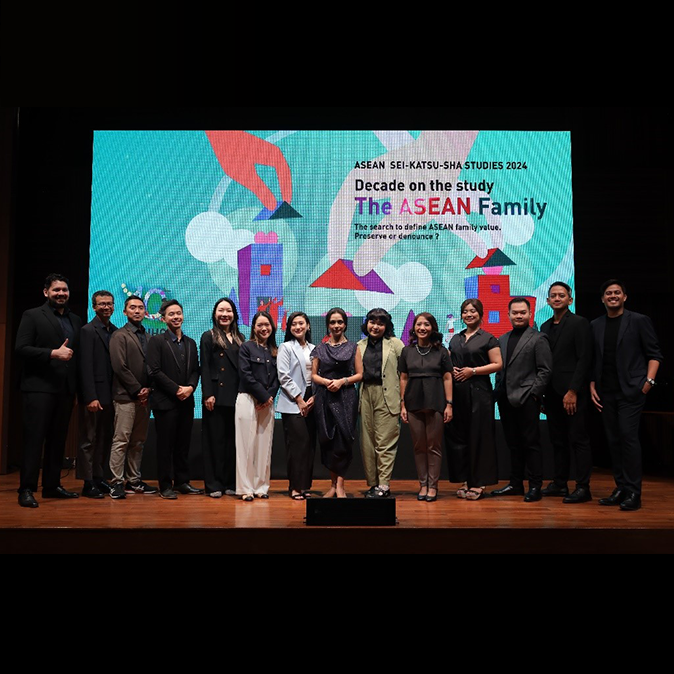- Events
- Research
- HILL
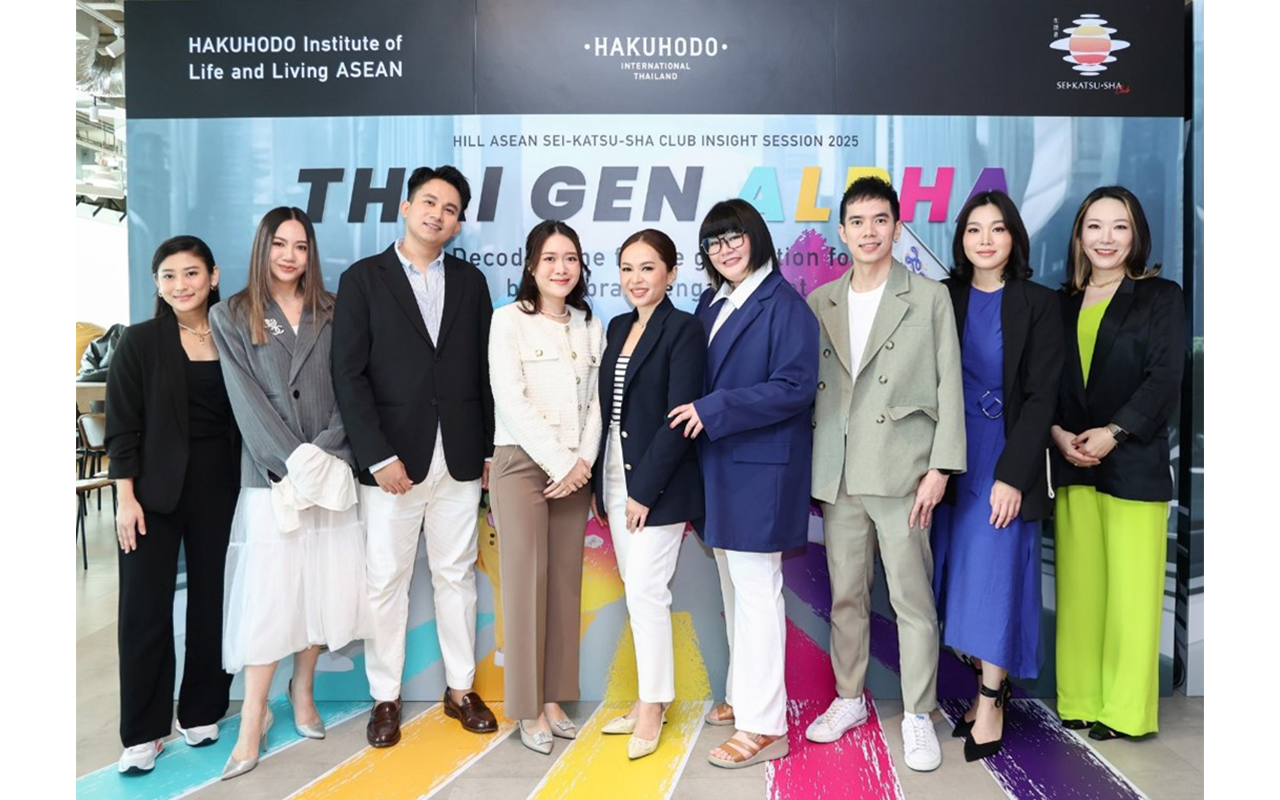
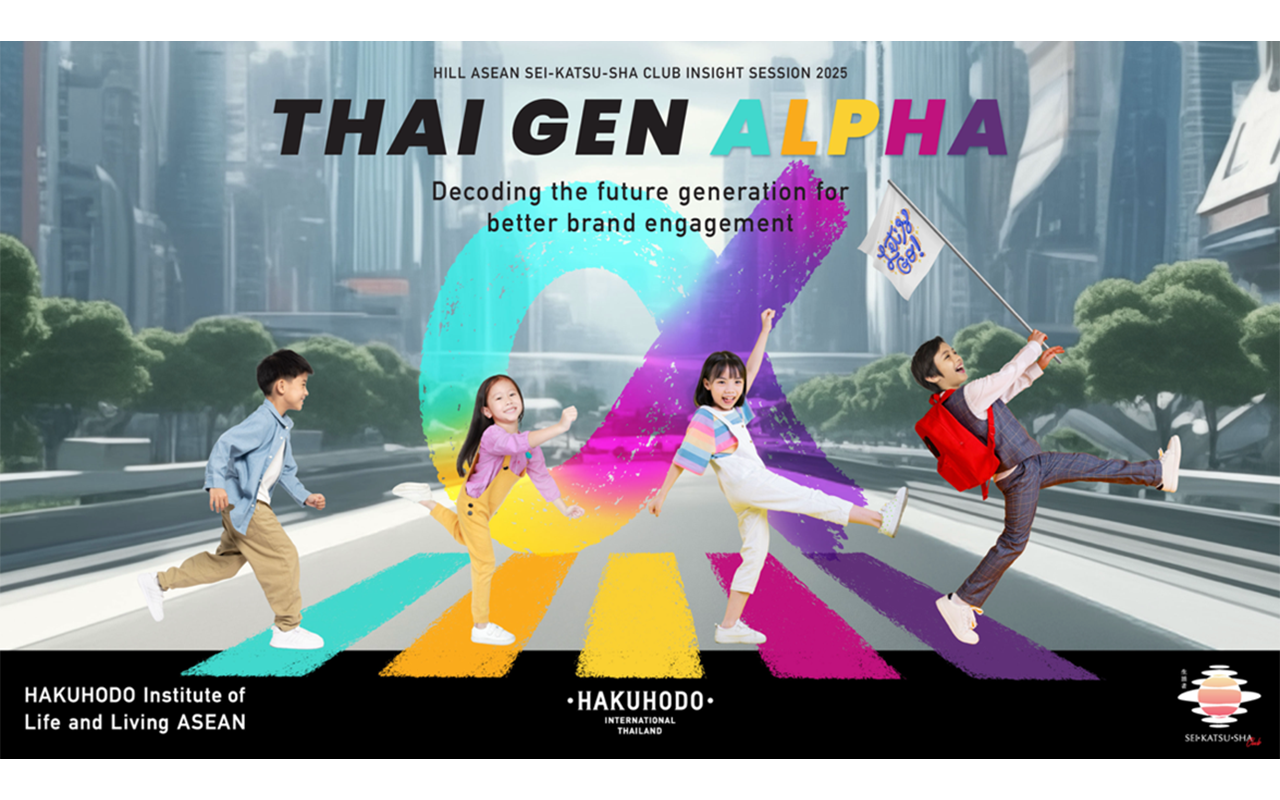
Hakuhodo Institute of Life and Living ASEAN (HILL ASEAN), in collaboration with Hakuhodo International (Thailand), recently released its findings on Thailand’s Generation Alpha. The successors to Gen Z, these children currently range from 15 down to infants. Yet despite their youth, Gen Alpha are already redefining consumption, decision-making and societal structures in hitherto unseen ways. HILL ASEAN’s extensive research, which included in-depth home interviews with children and their families, provides unique insights from the perspectives of Thai Gen Alpha children themselves. Topics include their relationships with their parents, their interaction with digital media and how they are preparing themselves for a bright future.
HILL ASEAN is a think tank that specializes in research on the behavior and attitudes of sei-katsu-sha*—Hakuhodo’s term for the holistic person. Two members of the team, Prompohn “Dee” Supataravanich and Chatchanin “Group” Itthipornvithoon, share the exciting findings from HILL ASEAN’s research into the hearts and minds of Thai Gen Alpha, along with some pointers for how brands can engage with this rising powerhouse.
What is Gen Alpha and why is it important to understand this generation?
DEE: Gen Alpha are those born between 2010 and 2024; today’s 0 to 15-year-olds. In Thailand, they make up around 9.9 million people, or 15% of the population. Though still young, Gen Alpha already influence family decisions, from daily groceries to travel plans and high-value purchases. Their indirect spending power is significant and growing. As they are expected to be the most educated, connected and long-lived generation yet, building early brand relationships with them is key. Brands that engage Gen Alpha now can become top-of-mind when they reach purchasing age.
Previous studies of Gen Alpha have mostly looked at these children from an adult perspective. What makes the HILL ASEAN research so unique?
DEE: Many of the reports published to date have focused on parenting and educational perspectives, specifically on the relationship between children and social media or technology through the lens of “how to raise children properly.” While “adult” perspectives are valuable and necessary for the analysis, at HILL ASEAN we believe that to truly understand this generation’s desires, dreams and worldview, we must also listen to the children themselves—even if they are still young.
That’s why, when designing our research, we focused not just on the “what” (their actions), but also the “why” behind them (their values and thoughts). In addition to quantitative surveys, we conducted in-depth interviews through home visits, creating a comfortable space for open dialogue with both the children and their parents. Home visits also let us go beyond Gen Alpha’s spoken remarks: we can observe, analyze, and draw insights about them from their lifestyle. This approach allowed us to really see the world through the children’s eyes, not just through adult interpretations, and is in line with our Sei-katsu-sha Insight philosophy, which sees people as whole human beings, uncovering their true thoughts from all angles.
What are the defining factors shaping Thai Gen Alpha?
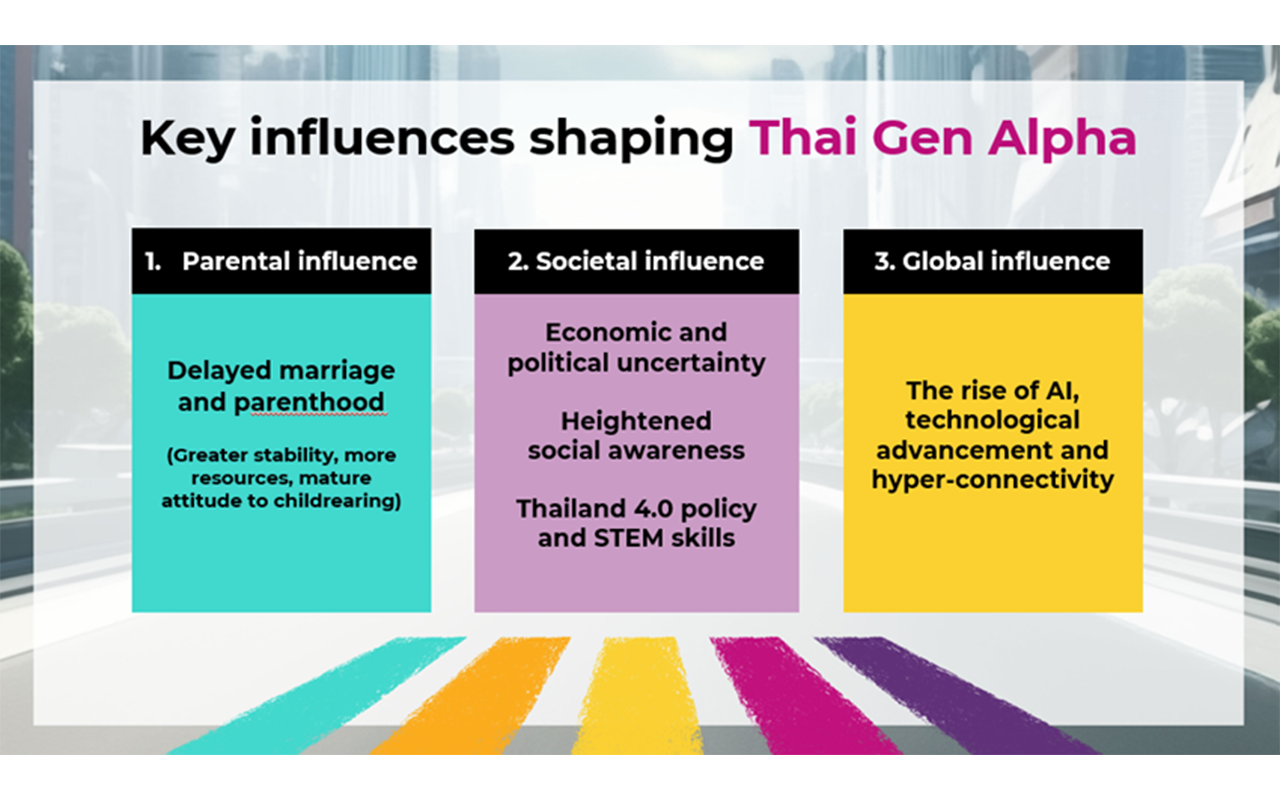
DEE: We looked into three layers of influences that are shaping their character: parental, societal and global.
—Delayed marriage and parenthood
Many parents today start families later in life, bringing emotional maturity and financial stability to parenting. Smaller families also allow for more focused care for the kids, helping nurture Gen Alpha’s confidence and individuality.
—Complex and uncertain society
Thailand’s fast-changing economy and political landscape are shaping families to be more adaptive. Kids are growing up in an environment that values resilience, strategic thinking and flexibility.
—Technological advancement and globalization
Raised in a hyperconnected world, Gen Alpha not only have access to global ideas but also the opportunity to exchange perspectives with people from diverse backgrounds at an early age. This exposure is fueling their curiosity and encouraging them to be informed, open-minded individuals with initiative.
What are the characteristics and family values of Thai Gen Alpha?
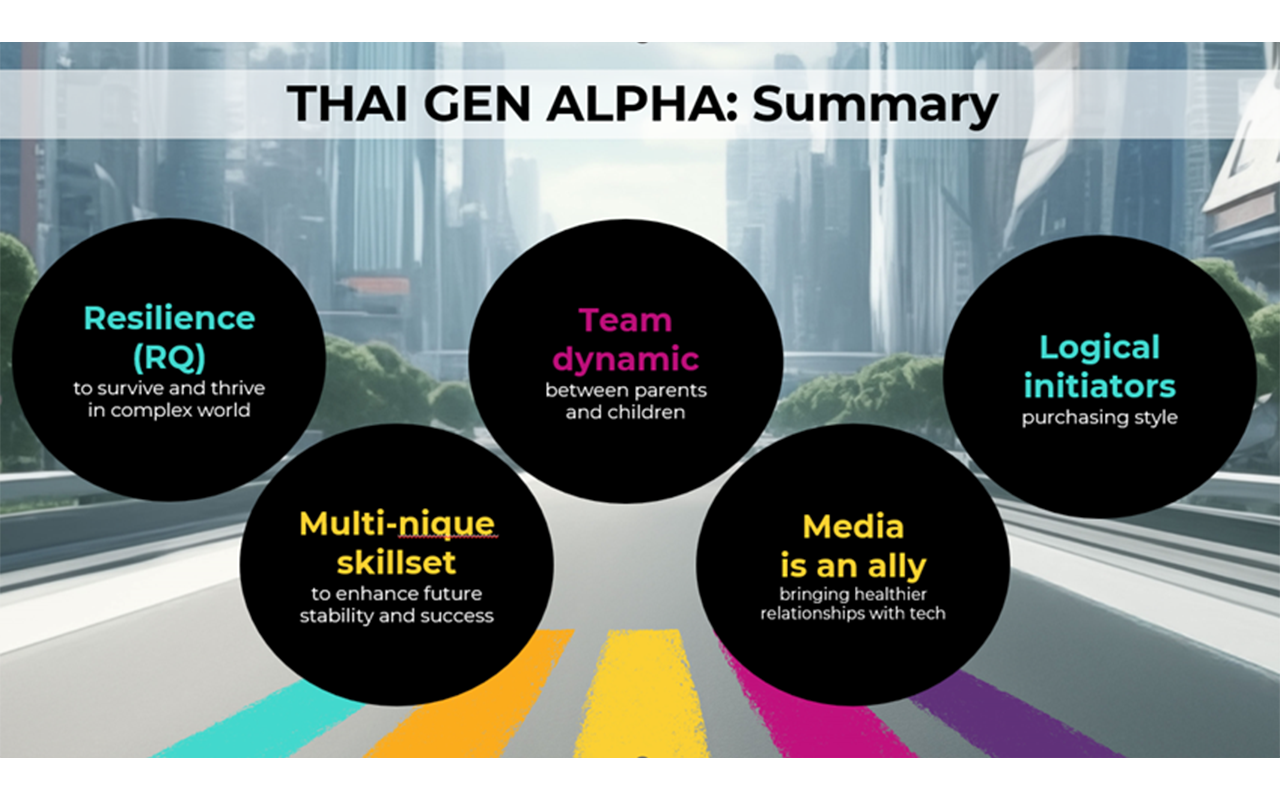
DEE: There are three main areas:
—For starters, Gen Alpha have been born into a world of growing complexity and constant change. This environment has shifted the definition of intelligence. In the past, IQ (intelligence quotient) was the benchmark, followed by EQ (emotional quotient). But for Gen Alpha and their parents, RQ (resilience quotient)—the ability to adapt and persist in the face of uncertainty—has become just as important, if not more so. This mindset is reflected in how they navigate daily life through what we call the 3Cs traits: Communication, Collaboration and Co-creation.
—Second is what we call the “multi-nique skillset.” As future career paths become harder to predict, Gen Alpha are not only encouraged—but also personally motivated—to develop a broad range of skills that help shape their own unique expertise. While traditional academics still provide an important foundation, we’re seeing a growing passion for fields like sports, arts, finance and specialized skills—all seen as pathways to long-term stability and success. Notably, for many parents today, the goal is no longer for their child to be “number one,” but to be well-equipped with diverse abilities that support a well-rounded future.
—Lastly, transparency in family dynamics is a defining trait of the parent-child relationship. Thai Gen Alpha value open and honest communication, which helps build trust and mutual respect. Many parents today respect their children as individuals and take time to explain things clearly—leading children to respond in a more logical and composed way, rather than emotionally. This creates an environment where parents and children can engage in equal, open discussions. Shared digital experiences, such as browsing YouTube together, checking delivery updates or reviewing purchase histories, also foster new forms of interaction and emotional connection within the family.
Tell us about the media consumption and purchase behaviors of Thai Gen Alpha.
GROUP: Thai Gen Alpha are deeply immersed in the digital world, but they don’t see screens as distractions; they see them as tools for learning, creativity and communication. YouTube serves as their main platform for discovery, whether it’s school topics or personal interests, while gaming has become a shared language that bridges gender and age. Digital content isn’t just consumed for fun—it’s used meaningfully in their everyday lives. In terms of consumer behavior, Gen Alpha stand out as “logical initiators.” They play an active role in family purchasing decisions, with 42% saying they influence what their parents buy. Rather than relying on impulse, they use logic and negotiation. In addition, they prefer shopping in physical stores (77%) over online shopping, seeing it as a chance to explore products and persuade their parents directly.
What differences have you observed between Thai Gen Alpha and Thai Gen Z?
GROUP: Thai Gen Alpha differ from Gen Z through their emerging core values and mindset. From our previous studies, we found that Thai Gen Z place importance on maintaining harmony with others, valuing self-worth and defining success through personal happiness and contentment. In contrast, Thai Gen Alpha are shaped by a growing emphasis on resilience and co-creation: a mindset centered on adaptability, persistence and the ability to creatively collaborate with others in an uncertain world. To prepare for this future, they actively pursue a multi-nique skillset by exploring areas like sports, arts, finance and coding to build their identity and equip themselves with the necessary tools to thrive.
These traits came from the world they were born into and how they’re being raised. Gen Alpha are the first to grow up fully surrounded by digital technology, using it naturally from a young age. Their parents are also taking a different approach: more open, trusting and collaborative, treating their children as individuals and encouraging independence through guidance, not control.
So how is digital media integrated into the lives of Thai Gen Alpha?
GROUP: For these kids, digital media is more than entertainment—it’s a tool for learning, discovery and creativity. Platforms like YouTube are their go-to search engines, while apps like CapCut and games are used for self-expression and connection. Digital media naturally supports their curiosity and skill-building. On average, they spend around four hours per day on screens, notably less than Gen Z’s six hours. Their screen time is often shaped by parental guidance, trust-based rules and reward systems, helping to create a more balanced routine that includes offline activities and family time. Another key factor behind their shorter screen time is the high participation in out-of-school activities, such as sports, arts and lessons on both weekdays and weekends, which leaves them with limited free time for screens.
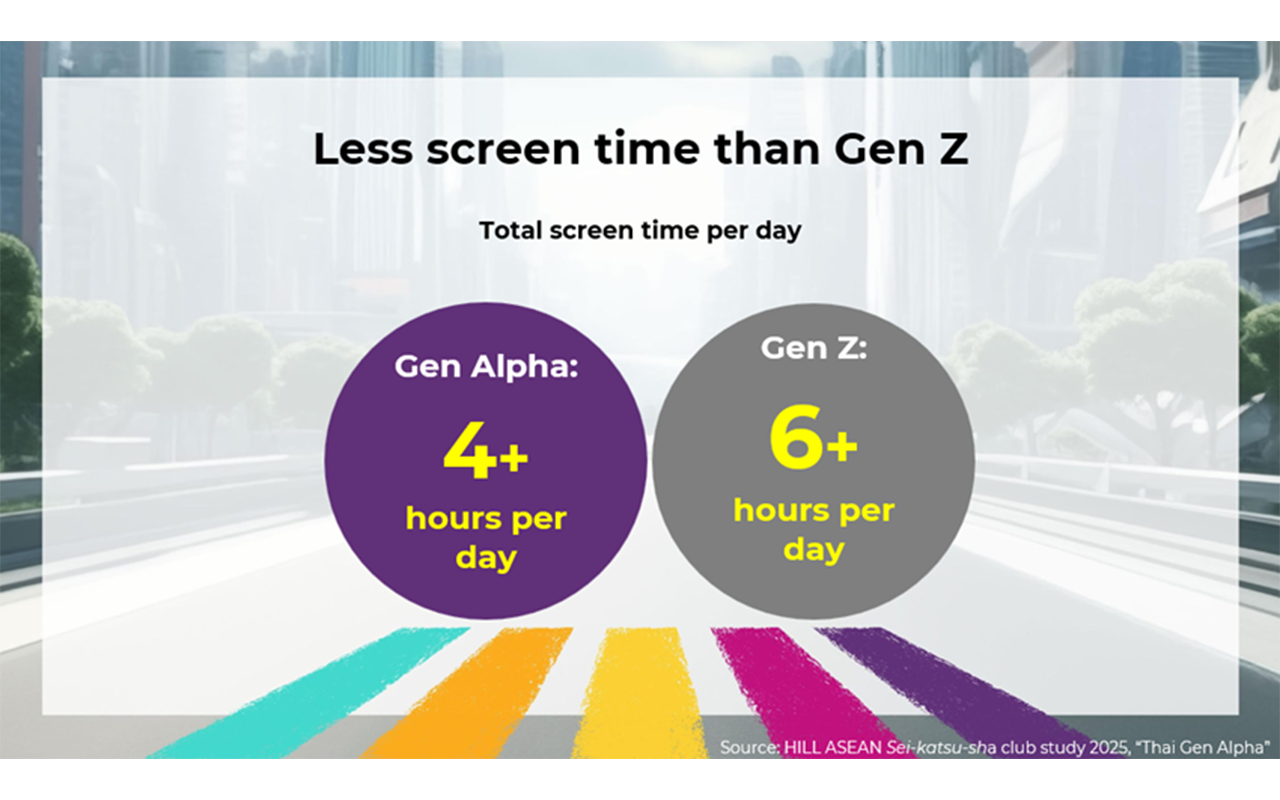
Much of the current research about children and screen time paints an image of a generation with short attention spans who expect instant results. How do the results of this study of Thai Gen Alpha differ?
GROUP: This study shows that Thai Gen Alpha challenge the typical negative view of screen time. They use digital devices with clear purpose: for learning, creativity, searching for information and connecting with others. Platforms like YouTube and gaming are tools for exploration, and 27% are aware of screen addiction, showing they use technology mindfully. Their healthy relationship with digital media comes from modern parenting, where children are treated as individuals with open communication and guidance, not control. Combined with active lifestyles filled with sports, arts, coding and family time, Gen Alpha are growing up logical, resilient and responsible, using screens as tools for growth rather than distraction.
Can you explain why Thai Gen Alpha are emerging as “logical initiators”?
GROUP: Thai Gen Alpha are emerging as “logical initiators” largely due to how they are raised. Parents today treat them as individuals, and children are given the space to share opinions, make small decisions and influence purchases, helping them develop critical thinking from an early age. Gen Alpha’s own traits strengthen this logic-driven behavior. They show maturity beyond their years, staying calm, reasoning through situations and continuously trying to improve. Their open-mindedness and resilience make them natural decision-makers who influence not just at home, but in the world around them.
What marketing opportunities do companies and brands have with Thai Gen Alpha, and how can they better connect with them?
GROUP: Brands should position themselves as mediators who empower kids to become active decision-makers and life skill learners. Move beyond product benefits by offering unique skill-building experiences (e.g., “Brand Boot Camp Family Day”), and make trust tangible through trackable rewards (e.g., “neGoodtiate” good-deed app). Shift from parent-led to child-led purchasing with in-store experiences (e.g., “Flip Shopper Day”), and transform gaming from pure entertainment into financial education via gamified smart shopping apps with AI coaching.
Is there anything regarding the research methodology that you would like to mention?
DEE: One of the most valuable parts of our research was the home visits. Speaking directly with both the child and their parents in their home environment allowed us to observe the parent-child dynamic in real time. Sometimes what people say doesn’t fully reflect the reality of their relationship. But by seeing them interact, we could pick up on unspoken cues, reactions, and behaviors that reveal deeper truths. Being welcomed into their homes also gave us rare access to the subtle details of daily life: the atmosphere, family photos, drawings by the children, their study materials, video viewing history on their tablets and wish lists on shopping sites. These seemingly small observations offer profound insight into their values, preferences and lifestyle.
We also developed original research methods tailored to Gen Alpha’s characteristics, such as using cartoon-based modules and card mapping activities to help draw out their thoughts and ideas, which is another unique aspect of HILL’s research methodology. These experiences were essential for us in order to understand Gen Alpha and their families not just as research subjects, but as whole people living in their own rich, personal context.
In closing, are there any other points that you wish to highlight?
DEE: In a rapidly changing and uncertain world, modern parents are a key force shaping the future of Gen Alpha with a nurturing approach. They must adapt to the modern world and build families that meet the specific challenges and contexts of their times. Every day, the love, patience and sacrifices of parents become a powerful driving force laying the foundation for the rising generation—the potentially world-changing Gen Alpha! HILL ASEAN would like to express deep appreciation and gratitude to all parents for their heartfelt, dedicated support of the physical and mental growth of Gen Alpha children.
To learn more about HILL ASEAN and its work, please visit:
https://www.facebook.com/hakuhodohillasean (in Thai and English)
https://hillasean.com
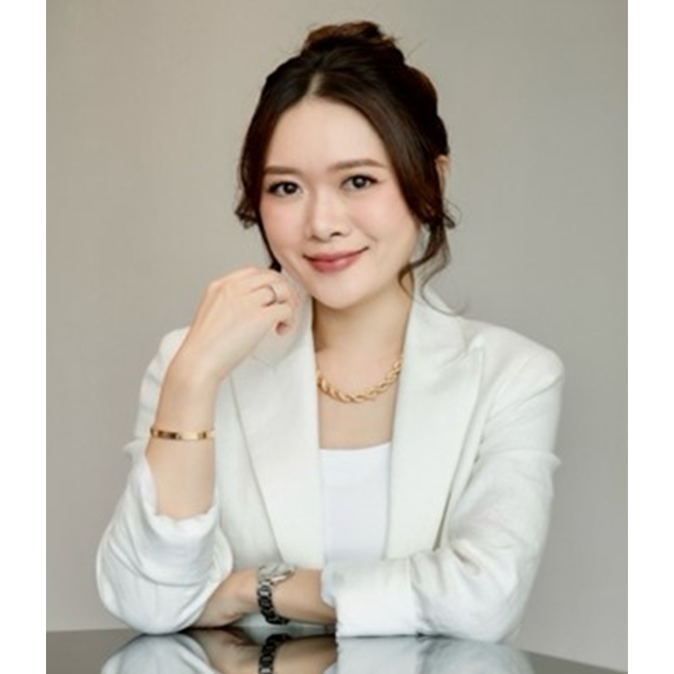

* “Sei-katsu-sha” is a term we use to describe people not simply as consumers, but as fully rounded individuals with their own lifestyles, aspirations and dreams.













